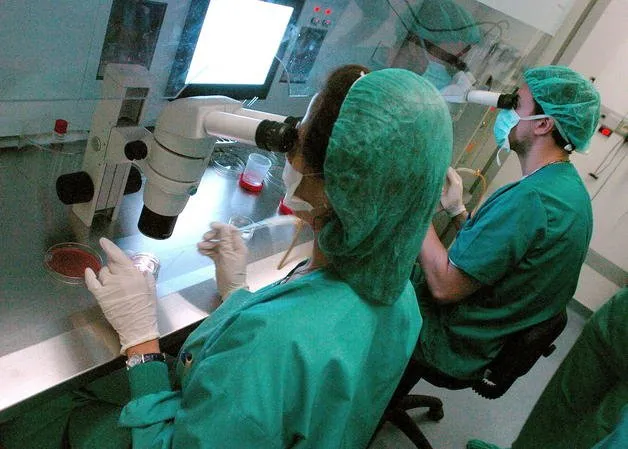In a press release, CIBER points out that these 11 groups have been selected from among the 132 presented by "their excellence in research and their suitability to collaborate on a network."
Manuel Sánchez, CIBER manager, indicates that with this "the scientific leadership of the different thematic areas will be reinforced."
The group that is incorporated into the CIBER in the area of Bioengineering, Biomaterials and Nanomedicine (CIBER-BBN) is directed by Xavier Trepat at the Bioengineering Institute of Catalonia, while the one that enters diabetes and associated metabolic diseases (CIBERDEM) is ledby Dr. Dídac Mauricio at the Germans Trias I Pujol Research Institute in Badalona.
Two new groups are incorporated into the cyber in their thematic area of rare diseases (CIBERER): one of them, led by Dr. Josep Dalmau in the IDIBAPS of Barcelona and the other led by Dr. Vicente Vicente at the Murcian Institute of Biosanitary Research.
Dr. Francisco García Ríos coordinates the new research group in the Thematic Area of Respiratory Diseases (CIBERES) at the San Paz University Hospital Health Research Institute, while the thematic area of Physiology of Obesity and Nutrition (CIBEROBN) incorporatesTwo new groups.
Thus, the group led by Dr. Luis A. Moreno at the University of Zaragoza and that of Mercedes Gil in the Imibic of Córdoba will be part of this consortium.
Two groups also enter the Mental Health Area (CIBERSAM).One of them is led by Professor Miquel Casas at the University Hospital Vall d'Hebron in Barcelona and the other by Dr. Elisabet Vilella, who directs the group “Genetic and Environment in the Psychosis” of the Institut Pere Mata de Reus University Hospital (Tarragona).
In addition, the CIBER incorporates two research groups led by doctors Jordi Figuerola at the Doñana Biological Station (CSIC) and María Carmen Muñoz at the Sant Joan de Déu hospital in Barcelona, which are part of the consortium in their thematic area ofEpidemiology and Public Health (CIBRESP).
Excellence research
The objective of the CIBER, a public consortium created at the initiative of the Carlos III Institute of Health, is to promote the research of excellence in biomedicine and health sciences carried out in the National Health System and in the Science and Technology System.
At present, CIBER - whose first centers began its activity in 2006 and since 2014 they have been integrated into a single consortium - has a workforce of almost 800 people and about 4,000 attached researchers.
They are integrated into 332 research groups, without physical contiguity, linked to 90 institutions.


